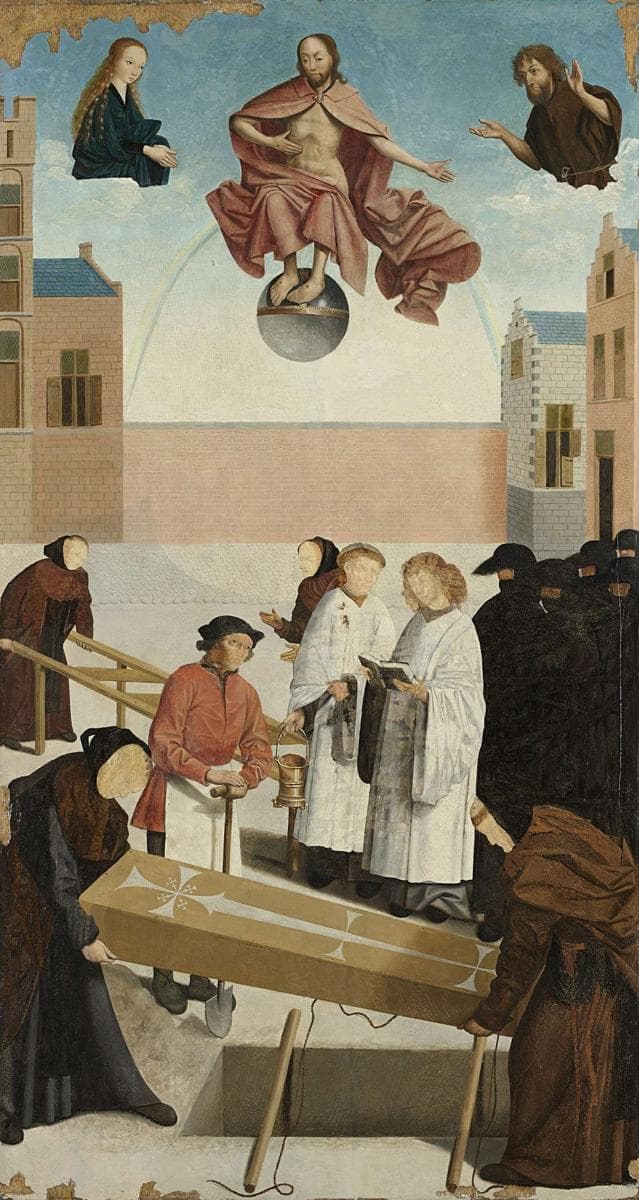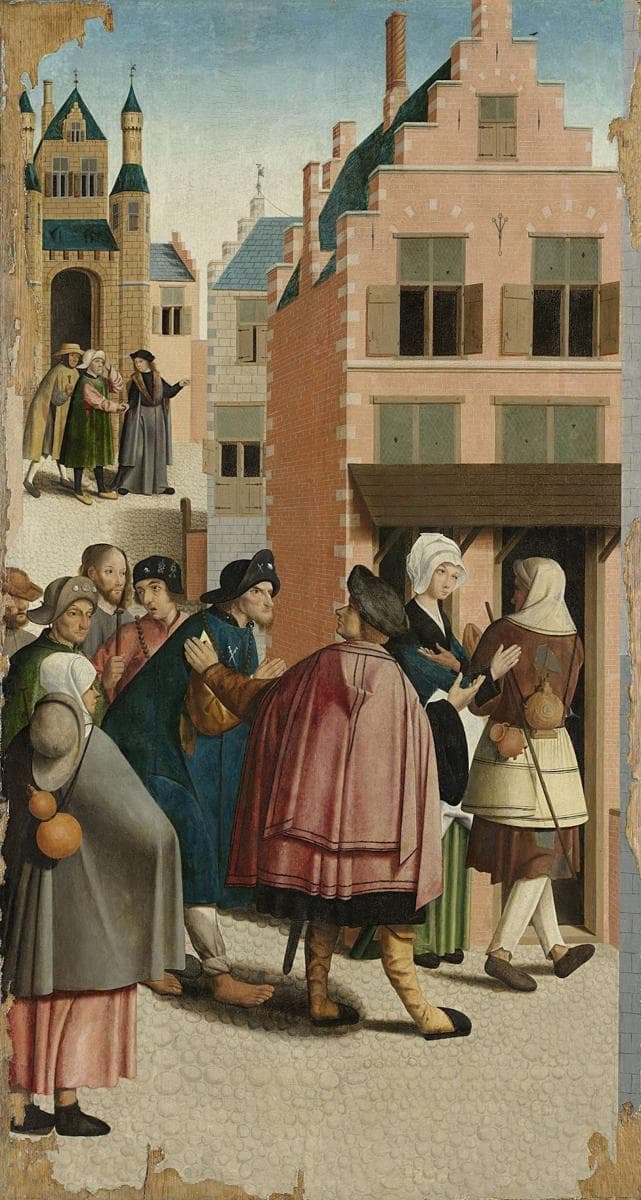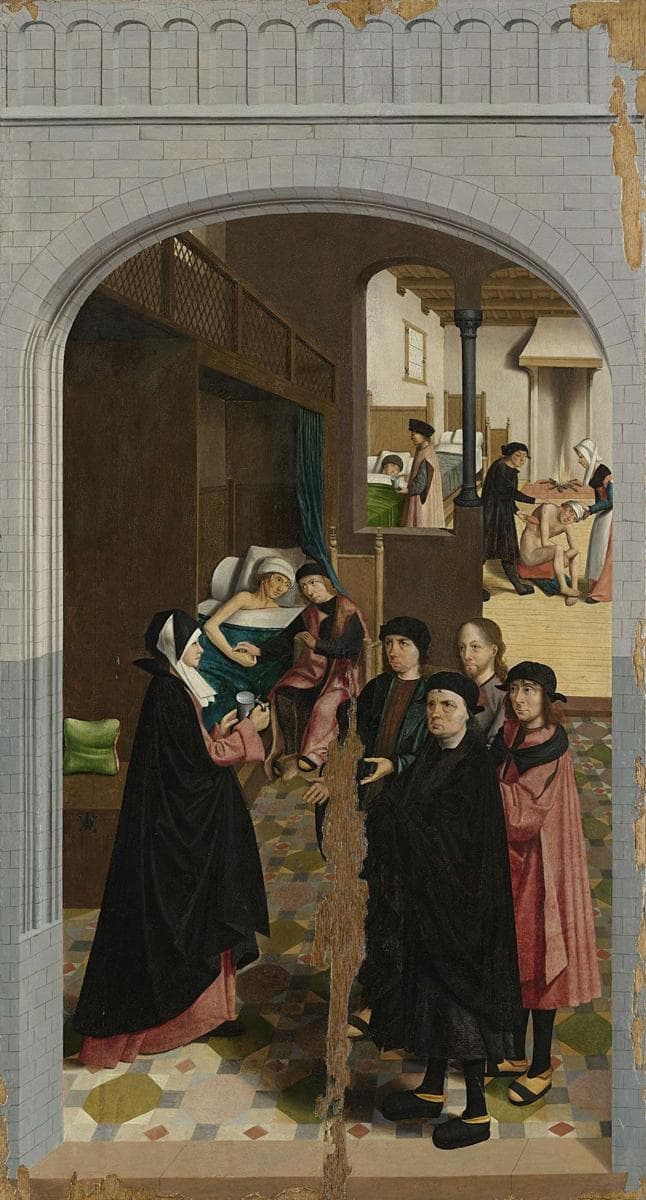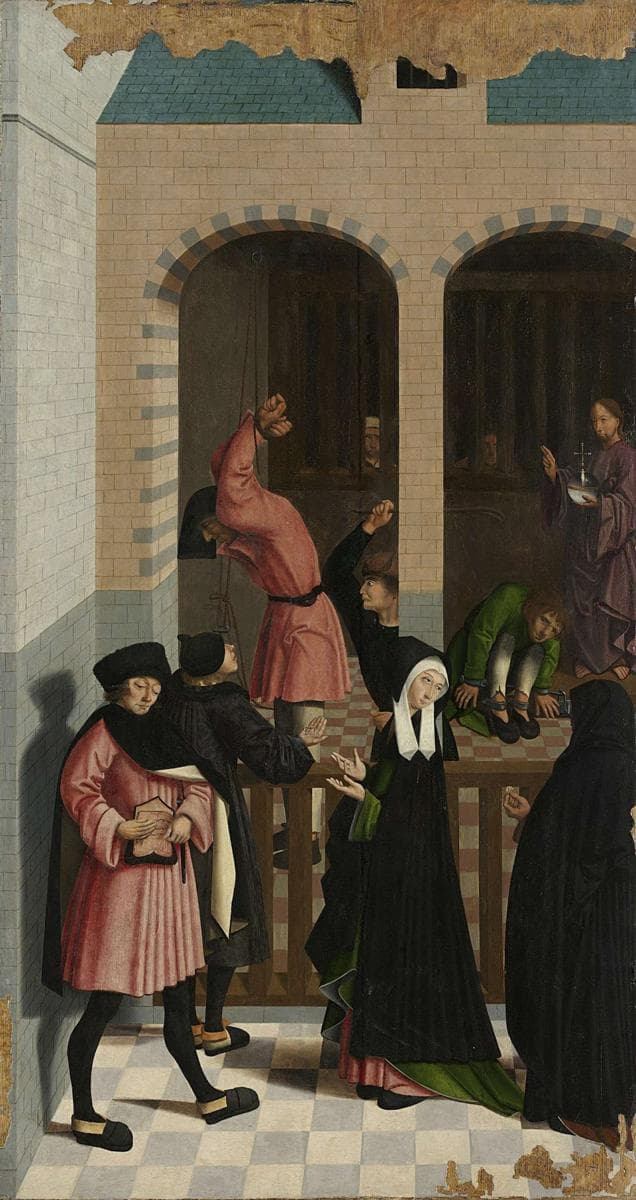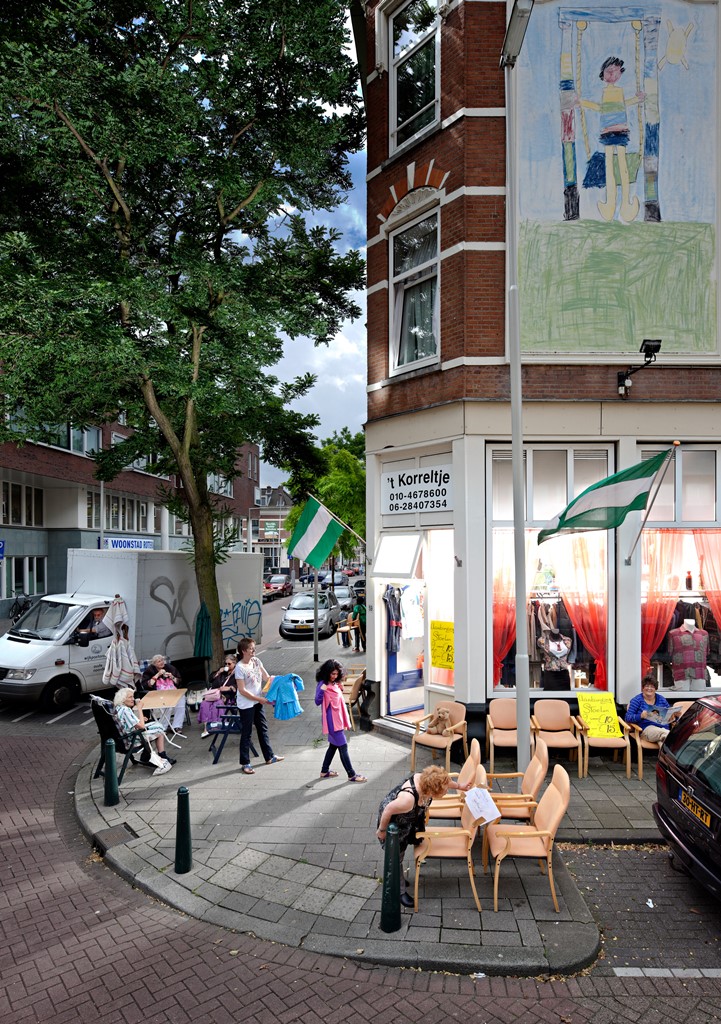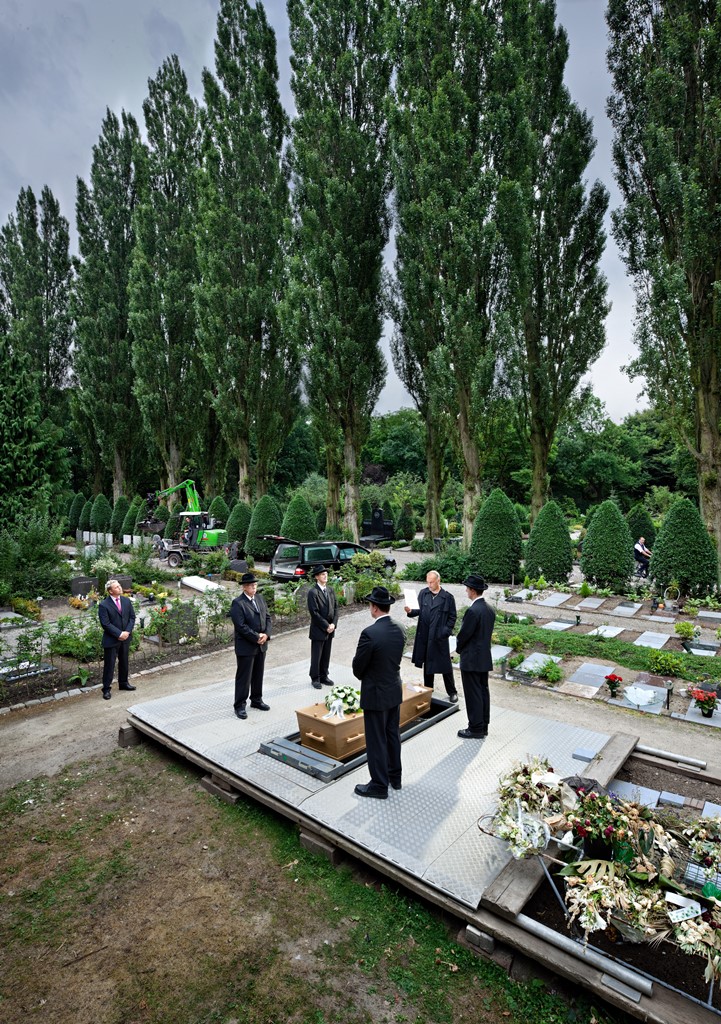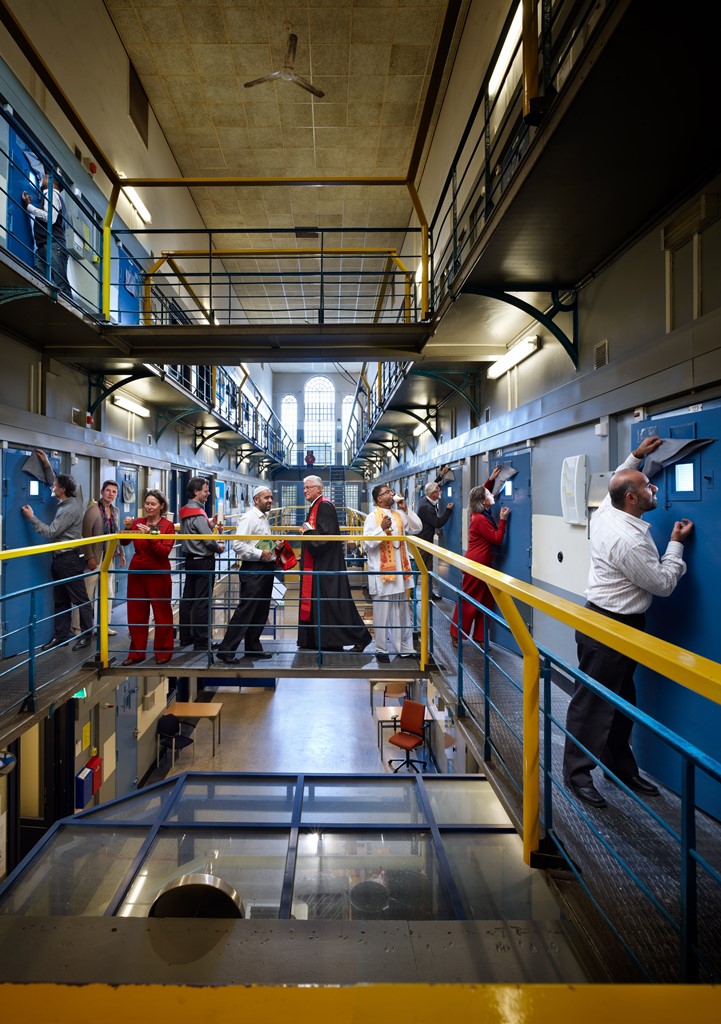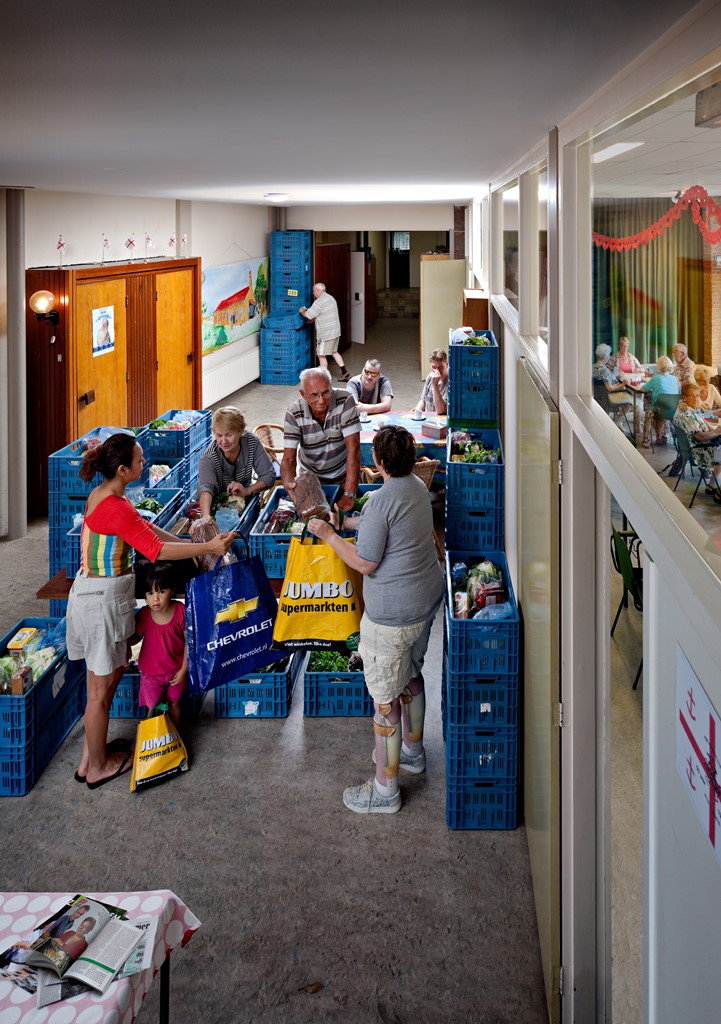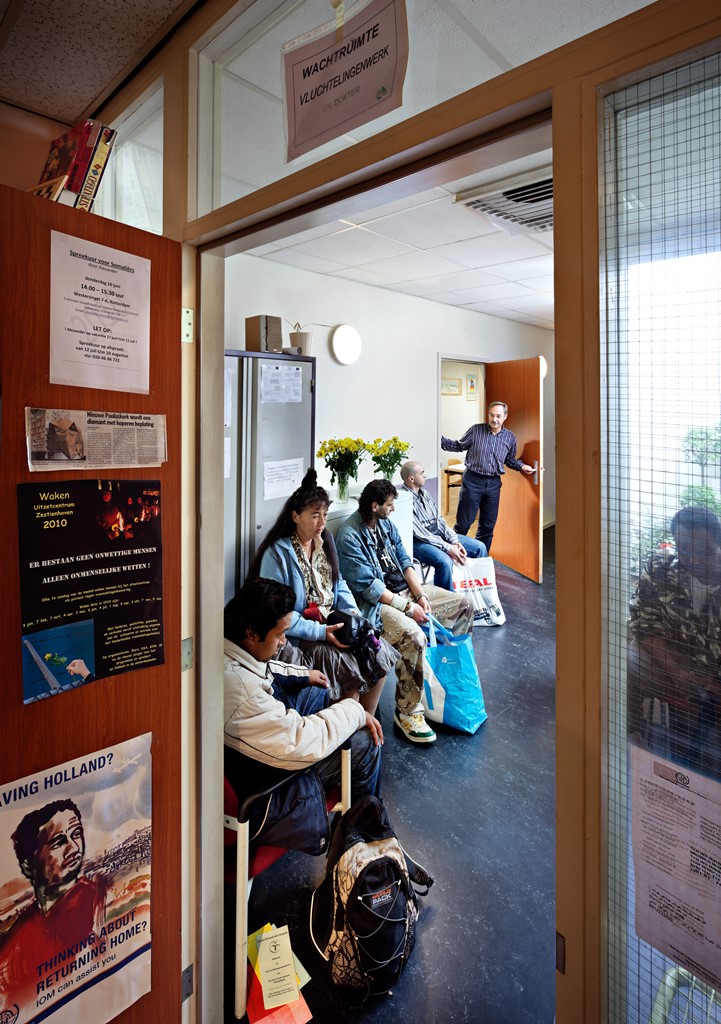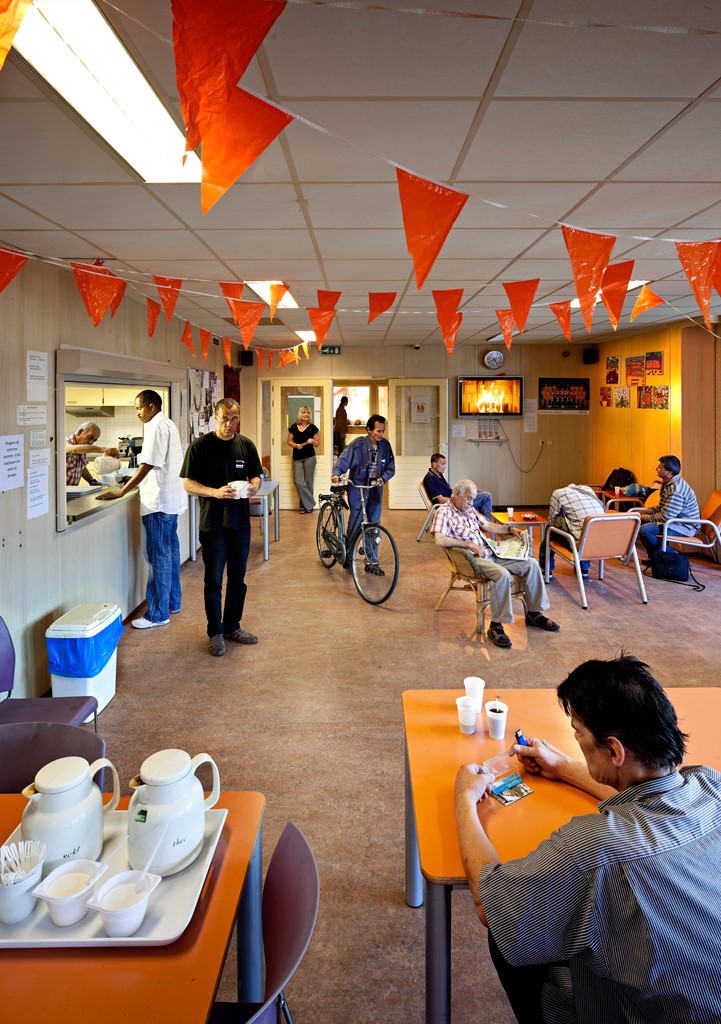March 6: When Did We See You?
♫ Music:
Please be sure to look through all the images for today.
Day 18 - Saturday, March 6
Title: “WHEN DID WE SEE YOU?”
Scripture: Matthew 25: 31-46
“But when the Son of Man comes in His glory, and all the angels with Him, then He will sit on His glorious throne. All the nations will be gathered before Him; and He will separate them from one another, as the shepherd separates the sheep from the goats; and He will put the sheep on His right, and the goats on the left. “Then the King will say to those on His right, ‘Come, you who are blessed of My Father, inherit the kingdom prepared for you from the foundation of the world. For I was hungry, and you gave Me something to eat; I was thirsty, and you gave Me something to drink; I was a stranger, and you invited Me in; naked, and you clothed Me; I was sick, and you visited Me; I was in prison, and you came to Me.’ Then the righteous will answer Him, ‘Lord, when did we see You hungry, and feed You, or thirsty, and give You something to drink? And when did we see You a stranger, and invite You in, or naked, and clothe You? When did we see You sick, or in prison, and come to You?’ The King will answer and say to them, ‘Truly I say to you, to the extent that you did it to one of these brothers of Mine, even the least of them, you did it to Me.’ “Then He will also say to those on His left, ‘Depart from Me, accursed ones, into the eternal fire which has been prepared for the devil and his angels; for I was hungry, and you gave Me nothing to eat; I was thirsty, and you gave Me nothing to drink; I was a stranger, and you did not invite Me in; naked, and you did not clothe Me; sick, and in prison, and you did not visit Me.’ Then they themselves also will answer, ‘Lord, when did we see You hungry, or thirsty, or a stranger, or naked, or sick, or in prison, and did not take care of You?’ Then He will answer them, ‘Truly I say to you, to the extent that you did not do it to one of the least of these, you did not do it to Me.’ These will go away into eternal punishment, but the righteous into eternal life.”
Poetry:
The Guest
by Wendell Berry
Washed into the doorway
by the wake of traffic,
he wears humanity
like a third-hand shirt
–blackened with enough
of Manhattan’s dirt to sprout
a tree, or poison one.
His empty hand has led him
where he has come to.
Our differences claim us.
He holds out his hand,
in need of all that’s mine.
And so we’re joined, as deep
as son and father. His life
is offered me to choose.
Shall I begin servitude
to him? Let this cup pass.
Who am I? But charity must
suppose, knowing no better,
that this man is a man fallen
among thieves, or come
to this strait by no fault
–that our difference
is not a judgment,
though I can afford to eat
and am made his judge.
I am, I nearly believe,
the Samaritan who fell
into the ambush of his heart
on the way to another place.
My stranger waits, his hand
held out like something to read,
as though its emptiness
is an accomplishment.
I give him a smoke and the price
of a meal, no more
–not sufficient kindness
or believable sham.
I paid him to remain strange
to my threshold and table,
to permit me to forget him—
knowing I won’t. He’s the guest
of my knowing, though not asked.
WHEN DID WE SEE YOU?
It is helpful to pair this Matt. 25 passage with the two works chosen for this devotion today: the Renaissance multi-panel painting, entitled Seven Works of Mercy, originally commissioned in 1504 for the parish Church of St. Lawrence Alkmaar, Netherlands, and the 2010 Works of Mercy Project by Dutch photographer Thijs Wolza, commissioned by the Church of St. Lawrence in Rotterdam. Both works represent those that Jesus identifies in this passage as his people, the ‘least of these’--the hungry, thirsty, homeless, naked, sick and imprisoned (Catholic tradition adds the dead and their need for a dignified burial).
Take a look at these two sets of works. Can you identify the images of ‘the least of these’ in each work?
In our Matthew 25 passage, an eschatological (end-times) vision, all the nations are gathered before the “Son of Man” (v. 32), clearly enthroning him as King over all. All the angels are with him, as if heaven has been emptied out for this royal event (v. 31). Although this passage is commonly referred to as the “sheep and the goats,” the chief focus is actually King Jesus himself. He appears in full royal glory (vs. 31) and sits on his ‘glorious throne.’ (v. 34). What was mockery, when it was written on the cross, ‘the king of the Jews,’ is now no longer ironic, but prophetic in a way much grander than even the disciples hoped for. And what Jesus the King announces then is the politics (or economy) of his kingdom. It is one where the ‘least of these’ are front and center.
What both artistic works provide us is a geographic context for finding the least of these in Jesus’ kingdom: the city. The Greek word for city is polis, which reminds us that every city is "political" in the best sense of that term. “Politics” fundamentally is the discussion and discernment about what is good for the city (polis) or kingdom and its people. Of course, for most of human history, including in the time of Jesus, this was not a discussion at all. As the king (or queen or caesar or emperor) determined the good, so went the kingdom. And it was seldom with the good of the hungry, thirsty, naked, homeless, sick, and imprisoned in mind.
In the 1504 work, the artist has placed these merciful works in the context of an idealized Medieval city. Taller dwellings and businesses frame and draw our attention to the charitable acts that fill the foreground and background of the narrow streets--as if this were the main business of the city. The figure of Jesus looks on from the crowd in each panel, governing the city with his mere loving presence. Wolza’s photographs whisk us from there to the modern city of Rotterdam and its busy charitable agencies including the Rotterdam Food Bank, the Noordsingel Prison, the Nico Adriaan Foundation for drug addiction, and the Pauluskerk (St. Paul’s Church) for undocumented immigrants. In these representations of the city, too, charity and justice are foregrounded as the important ‘business’ of the city.
It is in places and among people like these that the goats had not thought to look for a king. It was not where the action of the city was. The aim of life in the Caesar-Kingdom, which the goats knew well, was to move as far toward human strength and power as possible (to sit on the King’s left and right as the disciples, too, thought), and to get as far from human poverty and weakness as possible. They assumed, no matter who this new king was, it would be business and politics as usual.
It is easy to be self-righteous when it comes to the goats. But don’t we all want to escape the harsh distress of the human situation, the natural impoverishment of being human, its vulnerability, its insecurity, its fragility, its weakness, its sickness, its darkness, and the places in our cities where those who suffer huddle together? I know I do.
Do I even know where these places are in my city--the soup kitchen, the shelters, the clinics? I am not sure I can name them. They are not in my foreground. It is not my idea of a polis. But I think this is where I need to begin again, to look for these places, to bring these into my foreground, Maybe I will just drive by at first, or park in their lots. At some point I may get out of my car and see what takes place there. Perhaps, I will meet someone "fallen among thieves . . . his hand held out like something to read."
Prayer:
Most merciful God,
We confess that we have sinned against you
In thought, word, and deed,
By what we have done,
And by what we have left undone.
We have not loved you with our whole heart;
We have not loved our neighbors as ourselves.
We are truly sorry and we humbly repent.
Amen
Todd Pickett
Dean of Spiritual Development
Campus Pastor
Biola University
For more information about the artwork, music, and poetry selected for this day, we have provided resources under the “About” tab located next to the “Devotional” tab.
About the Artwork #1:
Werken van Barmhartigheid (The Seven Works of Mercy)
From left to right:
Feeding the Hungry
Giving Drink to the Thirsty
Clothing the Naked
Burying the Dead
Caring for the Sick
Welcoming the Stranger
Visiting the Imprisoned
Master of Alkmaar
1504
Oil on panel
Height: 119.1 cm; Width: 472 cm
101 × 54 cm (each panel)
Rijksmuseum
Amsterdam, Netherlands
A Dutch cityscape is the backdrop to this seven-panel narrative that shows the corporal works of mercy, acts concerned with the material and physical well-being and needs of others. The standard list is given by Jesus in Chapter 25 of the Gospel of Matthew. In most of the panels, with the exception of the central panel in which Jesus watches the scene from the heavens, Jesus appears as one the spectators in each panel. This series by the Master of Alkmaar was commissioned in 1504 by the regents of the Holy Spirit Almshouse in Alkmaar, before being moved to the Church of St. Lawrence in 1574 where it remained until it was bought in 1918 by its present owner, the Rijksmuseum in Amsterdam.
About the Artist #1:
The Master of Alkmaar (active c. 1500 -1515) was a Dutch painter active around Alkmaar at the beginning of the sixteenth century.
About the Artwork #2:
Werken van Barmhartigheid (Works of Mercy)
Caring for the Sick
Clothing the Naked
Burying the Dead
Visiting the Imprisoned
Feeding the Hungry
Welcoming the Stranger
Giving Drink to the Thirsty
Thijs Wolzak in collaboration with Kathelijne Eisses
2010
Seven Duratran prints in lightboxes
180 x 240 cm
Sint-Laurenskerk (Church of Saint Lawrence)
Rotterdam, Netherlands
Feeding the hungry, giving drink to the thirsty, welcoming the stranger, clothing the naked, caring for the sick, burying the dead, and visiting the imprisoned are all works of mercy and compassion that have traditionally been known as the Seven Corporal Works of Mercy. These acts of mercy bring relief to those who suffer, but they also provide hope for change, hope for relationships, and hope for restoration. Photojournalist Thijs Wolzak worked with Kathelijne Eisses of Kossmanndejong, an international design agency specializing in exhibition design and interior architecture, to redesign the interior sacred space of Sint-Laurenskerk (Church of Saint Lawrence). The oldest building in Rotterdam, Sint-Laurenskerk had been largely destroyed during World War II. Though rebuilt after the war, many of the visual and narrative elements associated with the church had disappeared from the interior space. Working with a variety of artists and crafts persons, Kossmanndejong’s task was to bring back the sacred meanings and stories associated with the church’s long history.
https://www.radixmagazine.com/2020/09/12/the-seven-works-of-mercy-how-two-dutch-artworks-one-renaissance-one-contemporary-can-help-us-recover-an-ethic-of-neighborly-care/
About the Artist #2:
Thijs Wolzak (b. 1965) is a Dutch documentary and commercial photographer. Since 1988, Wolzak has been working on a steadily growing body of documentary work, both for assignments and personal projects. His works are typically complex and narrative, emphasizing the context and significance of the subject rather than the actual subject. His work has been featured in magazines, international annual reports, image banks for ministries, and as documentation for architectural and design firms. His work can be found in the Stedelijk Museum Collection in Amsterdam, the Van Zoetendaal Collection, and the CLB Art Collection. From 2011 to 2018, he worked on a weekly column in the weekend supplement of Dutch newspaper NRC Handelsblad.
http://thijswolzak.nl/
https://www.kossmanndejong.nl/project/a-monument-filled-with-stories/
https://archello.com/user/kossmanndejong-pr
About the Music:
“Ne irascaris Domine - Civitas sancti tui” from the album After Silence I. Remembrance
Lyrics:
Ne irascaris Domine satis,
et ne ultra memineris iniquitatis nostrae.
Ecce respice populus tuus omnes nos.
Civitas sancti tui facta est deserta.
Sion deserta facta est,
Jerusalem desolata est.
Lyrics Translation:
Be not angry, O Lord,
and remember our iniquity no more.
Behold, we are all your people.
Your holy city has become a wilderness.
Zion has become a wilderness,
Jerusalem has been made desolate.
About the Composer:
William Byrd (1539–1623) was an English composer during the Renaissance. He wrote in many of the musical forms popular in England at the time, including various types of sacred and secular polyphony, keyboard (Virginalist School), and consort music. He produced sacred music for use in Anglican services, although he himself became a Roman Catholic in later life. Today’s music is a setting of Isaiah 64:9.
https://en.wikipedia.org/wiki/William_Byrd
https://www.allmusic.com/artist/william-byrd-mn0000804200/biography
About the Performers:
Formed in 2005, VOCES8, an a cappella octet from the United Kingdom, has a diverse repertoire ranging from early English and European Renaissance choral works to their own original arrangements. The ensemble is dedicated to supporting promising young singers and awards eight annual choral scholarships through the VOCES8 Scholars Initiative, at which amateur singers of all ages are invited to work and perform with the ensemble. VOCES8 tours extensively throughout Europe, North America, and Asia, and their artistic collaborations have included the Philharmonia Orchestra, London Philharmonic Orchestra, period ensemble Les Inventions, violinist Hugo Ticciati, and cellist Matthew Sharp.
http://www.voces8.com/
About the Poet:
Wendell Erdman Berry (b. 1934) is an American novelist, poet, environmental activist, cultural critic, and farmer who was educated at the University of Kentucky, where he became Distinguished Professor of English in 1971. The intensity of his writing’s involvement with the human and natural characters of his native locality has gained Berry recognition as one of the leading writers of the twentieth century. A prolific author, he has written many novels, short stories, poems, and essays. He is an advocate of Christian pacifism, as shown in his book Blessed Are the Peacemakers: Christ’s Teachings About Love, Compassion and Forgiveness. He states that the theme in his writing is “that all people in the society should be able to use the gifts that they have, their natural abilities, and they ought to use them responsibly for their benefit as individuals and as a community.” Berry was named the recipient of the 2013 Richard C. Holbrooke Distinguished Achievement Award, an annual U.S. literary award recognizing the power of the written word to promote peace.
https://www.britannica.com/biography/Wendell-Berry
About the Devotion Author:
Todd Pickett
Dean of Spiritual Development
Campus Pastor
Biola University
A native Californian, Todd Pickett has been an English professor for many years and is now the Dean of Spiritual Development at Biola University. He has degrees in classical languages and literature from Stanford University and Trinity College in Dublin, Ireland; an M.A. in Spiritual Formation and Soul Care from Biola University; and a Ph.D. in English from the University of California, Irvine. He leads retreats, undertakes group and individual spiritual direction, preaches regularly, and speaks frequently to groups on Christian spiritual formation from an evangelical perspective. He lives in Costa Mesa, California, and is married to Dottie Cox Pickett, a marriage and family therapist.

_nWhJeSI.jpg)
.jpg)
.jpg)
.jpg)
